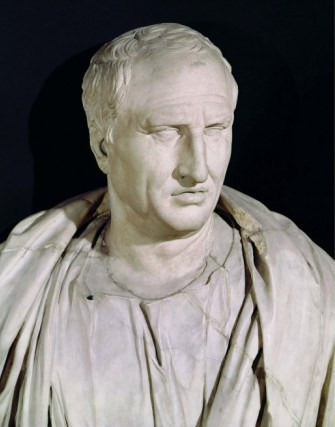What of Roman alchemy? Rome was the inheritor of Greek thinking, and Rome had a close interaction with Ptolemaic Egypt when alchemy was discovered.
Rome didn't give a hoot about alchemy. No mentions of alchemy, no documents, nothing whatever. As though it didn't exist. Why is that?
Romans were practical. They were political. But alchemy is, at it's heart, a philosophical undertaking, and the Romans just didn't go in for things like natural philosophy.
Roman culture expanded to all of the Mediterranean from 150 B.C. to 300 A.D. It became a Cristian culture and moved to Constantinople after that. Roman rule was very different from Greek/Hellenistic rule. Romans liked to organize and tax. They kept armies of Romans in the conquered states. Roman citizens were quite above all others. The Romans expanded West to Britain, but not East to Persia. The Roman armies were active taking over lands starting 500 B.C. and fought constantly through 400 A.D. The New Testament Gospels are in small part an account of the warlike nature of the Romans. This gives a culture a very practical mind: they are dealing with very practical problems of forced rule in very practical, warlike ways. Philosophy isn't an interest to a warrior.
The practical view of the Romans lead to some remarkable things, like the use of cement in making viaducts to bring fresh spring water into the big cities, making buildings and colosseums from concrete, concrete which still holds it's firmness 2000 years later. They excelled in law, in civic organization as a republic, in housing and amenities (like indoor plumbing). They had some practical knowledge of chemistry, dying primarily, and in sweetening wine with lead acetate, but nothing so frivolous as alchemy, it seems. Schooling for boys was available to the wealthy, centering around reading, writing (in Latin and Greek) and counting. Later oratory was added. All communication skills useful in the marketplace and in law, politics, the Forum. What Roman philosophy we have is all derived from the Greek schools of thought; nothing new from Rome. Two of the four Greek Schools were those of Plato and Aristotle, so they saw the same ideas that inspired alchemy, but nothing came of the Greek philosophies. No Roman Schools of thought have been identified. Romans were far more interested in the rhetoric of a good speech by Cicero than a great idea by Aristotle.

Cicero
Even the science of Rome was a practical one, as Archimedes invention of water-displacement volume measurement, the heat-ray, the water screw, and even the fanciful "claw" for upsetting invading ships at the docks.
